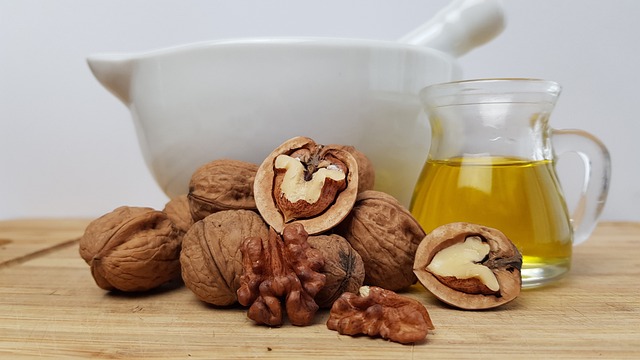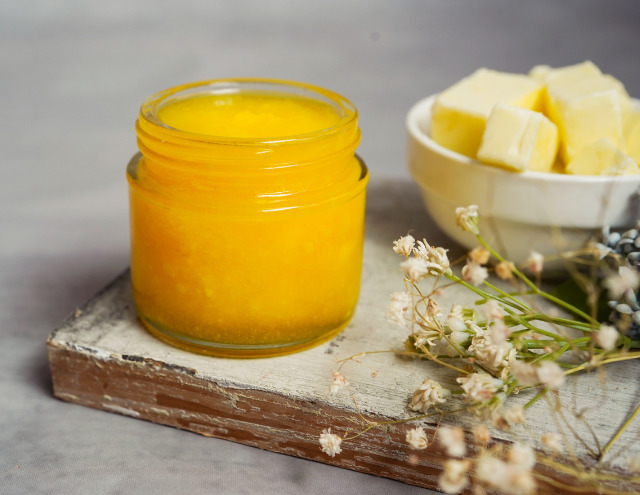Sunflower oil, derived from the seeds of sunflowers, is a widely consumed cooking oil known for its mild flavor and versatility. It is commonly used in various culinary applications, including frying, baking, and salad dressings. This article provides an overview of the pros and cons associated with the usage of sunflower oil, allowing you make informed choices about incorporating it into your cooking routines.
Pros of Using Sunflower Oil
- Heart-Healthy Fats: Sunflower oil is predominantly composed of monounsaturated and polyunsaturated fats, which are considered heart-healthy fats. These fats can help reduce LDL (bad) cholesterol levels and promote a healthy cardiovascular system when used as a replacement for saturated or trans fats.
- Vitamin E Content: Sunflower oil is an excellent source of vitamin E, a powerful antioxidant that plays a crucial role in protecting cells from damage caused by free radicals. Vitamin E supports skin health, boosts the immune system, and may have anti-inflammatory properties.
- High Smoke Point: Sunflower oil has a relatively high smoke point, typically around 450°F (232°C), making it suitable for high-heat cooking methods like frying and sautéing. The high smoke point allows for the retention of flavors and the maintenance of the oil’s nutritional integrity during cooking.
Cons of Using Sunflower Oil
- Omega-6 Fatty Acids Imbalance: While sunflower oil contains healthy fats, it is important to consider the omega-6 fatty acid content. Excessive consumption of omega-6 fatty acids, which are prevalent in sunflower oil, relative to omega-3 fatty acids may contribute to an imbalance. An imbalance of these essential fatty acids can promote inflammation in the body, potentially increasing the risk of chronic diseases.
- Processing Methods: The quality of sunflower oil can vary depending on the processing methods used. Some sunflower oils may undergo extensive refining processes, which can involve the use of harsh chemicals and high temperatures. This may result in the loss of natural nutrients and the introduction of potentially harmful substances.
- Allergen Risk: Individuals with a known allergy to sunflowers should exercise caution when using sunflower oil. Although rare, allergic reactions to sunflower oil can occur, leading to symptoms such as skin rashes, itching, and difficulty breathing. It is important to read product labels carefully and consult with a healthcare professional if uncertain.
How to Select The Healthiest Sunflower Oil
When selecting the most healthy type of sunflower oil, here are some tips to consider:
- Choose cold-pressed or expeller-pressed oils: Look for sunflower oils that are labeled as “cold-pressed” or “expeller-pressed.” These methods of extraction involve minimal heat and do not use chemical solvents, preserving the natural nutrients in the oil.
- Opt for high oleic sunflower oil: High oleic sunflower oil is derived from a specific variety of sunflower seeds that have a higher concentration of monounsaturated fats, particularly oleic acid. This type of oil is more stable at high temperatures and has a better omega-6 to omega-3 fatty acid ratio.
- Check for non-GMO and organic certifications: Look for sunflower oils that are certified non-genetically modified organisms (non-GMO) and organic. This ensures that the oil is produced from sunflower seeds that have not been genetically modified and grown without synthetic pesticides or fertilizers.
- Consider the smoke point: The smoke point is the temperature at which an oil starts to break down and release harmful compounds. Choose a sunflower oil with a high smoke point to ensure it can withstand high-heat cooking methods, such as frying or deep-frying, without deteriorating the oil’s nutritional properties.
- Pay attention to packaging: Sunflower oil is susceptible to oxidation and rancidity when exposed to light, heat, and air. Look for oils that are packaged in dark, opaque bottles or containers that protect the oil from light and choose bottles that are not damaged or leaking.
- Read the ingredient list: Ensure that the sunflower oil you select contains only sunflower oil and no additives or preservatives. Avoid oils that are blended with other vegetable oils, as this can affect the overall quality and nutritional profile.
While sunflower oil can be a part of a healthy diet, it’s essential to consume it in moderation. Like any oil, it is high in calories and fat. Use it sparingly and balance it with a variety of other healthy fats in your diet, such as olive oil, avocado oil, or coconut oil.
Sunflower oil offers several benefits, including its heart-healthy fats and vitamin E content. Its high smoke point makes it suitable for various cooking methods. However, it is crucial to be aware of the omega-6 fatty acid imbalance and potential allergenic risks associated with sunflower oil. As with any cooking oil, moderation and variety in fat sources are key.
Image by Hans Linde from Pixabay
Oils
-

Grapeseed Oil: A Versatile and Nutritious Cooking and Skincare Oil
Grapeseed oil is a popular cooking oil and skincare ingredient derived from the seeds of grapes. It is widely recognized for its light flavor, high smoke point, and numerous health and beauty benefits. With its unique nutritional profile and versatile applications, grapeseed oil has become a staple in kitchens and beauty routines worldwide. In this…
-

Wheat Germ Oil: A Nutritional Powerhouse for Health and Beauty
-

The Surprising Link Between Coconut Oil and Weight Loss
-

Some Uncommon Oils to Dress Salads That You Must Try Today
-

Why You Need Ghee – Definition, Health Benefits, and Culinary Uses
-

Sunflower Oil: Exploring Pros and Cons of its Usage
-

The Hidden Truth: Why Canola Oil May Not Be the Best Choice for Your Health








Leave a Reply